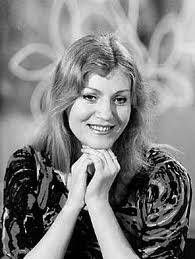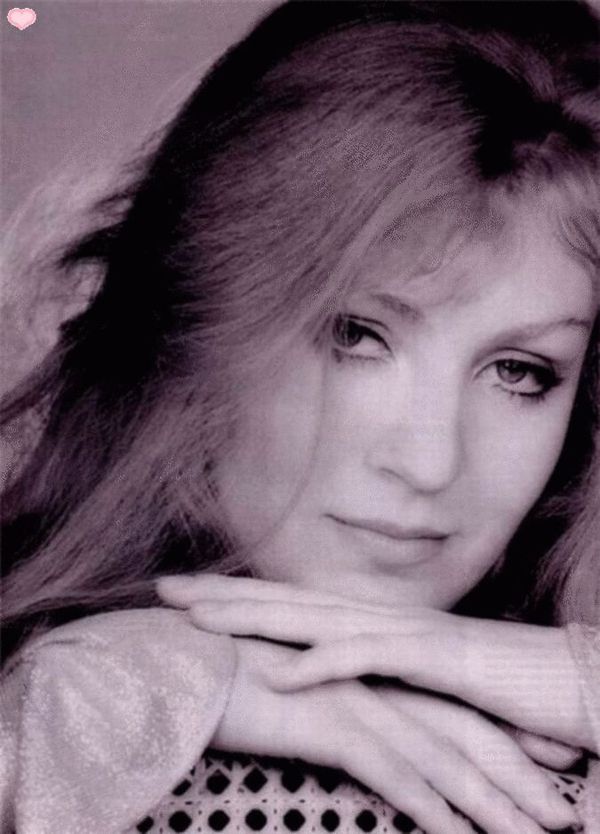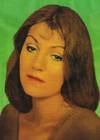
Творчество Анны Герман в ссср
Песни для неё писали советские композиторы-песенники Арно Бабаджанян, Евгений Птичкин, Александра Пахмутова, Ян Френкель, Оскар Фельцман, Владимир Шаинский и другие. Наиболее известны в её исполнении песни: «Надежда» (муз. А. Пахмутовой на сл. Н. Добронравова), «Когда цвели сады», «Эхо любви», «Случайность», «Гори, гори, моя звезда». Песни в исполнении Анны Герман отличались большой теплотой, задушевностью, певучестью и мелодичностью.
Анна была очень популярна среди любителей лирической песни в Советском Союзе 1970—1980-х годов. При жизни здесь, на фирме «Мелодия» было выпущено пять её долгоиграющих грампластинок, первая из которых вышла в октябре 1968 года и является на сегодняшний день коллекционным филофоническим раритетом.
В 1977 году состоялось историческое выступление Анны Герман на финале фестиваля «Песня года» с песней «Когда цвели сады». Устроенная зрителями продолжительная овация в зале заставила организаторов фестиваля выйти за жёсткие рамки телевизионного эфира и песня была исполнена «на бис» (редчайший случай в истории «Песен года», видеозапись выступления утрачена).
Несмотря на неофициальное звание «Белого ангела польской эстрады», в самой Польше отношение к ней было несколько неоднозначным — исполнение большинства песен на русском языке нравилось далеко не всем из-за неприятия советской политики по отношению к Польше. Сама Анна была искренним сторонником максимально тесных культурных связей между народами Польши и Советского Союза и считала себя польской певицей.
Голос Анны Герман — мощное лирико-колоратурное сопрано необычного, прозрачного,
В репертуаре певицы были песни различной жанровой направленности и смысла. Даже шуточные песни несли в её голосе лёгкий прозрачный налёт печали. Что касается трагических песен про войну, тяжёлую утрату или несчастную женскую судьбу — в них Герман раскрывала полностью свой драматический артистический дар, неподдельно и пронзительно показывая безутешное горе и глубокое отчаяние. Эта манера покорила слушателей всех стран, где она выступала.
Для исполнения песни «Эхо любви» в фильме Евгения Матвеева «Судьба» (1977) была выбрана Анна Герман (в дуэте с Л. Лещенко). Эта песня также стала популярным синглом советской песни конца 1970-х — начала 1980-х годов.
Память
Ежегодный Международный фестиваль им. Анны Герман «Танцующие Эвридики» в Зелёна-Гуре (Польша, проходит в мае). 1-й фестиваль состоялся в 2002 году.
Международным союзом немецкой культуры (Москва) в 2011 году учреждён грант в области искусства им. Анны Герман[5]. Номинанты на грант — знаковые имена немцев России. Лауреатом в 2011 году стал Эдуард Хиль.
В её родном городе Ургенче именем певицы названа улица.
В 2012 году вышел фильм о жизни певицы «Анна Герман». Роль Анны Герман сыграла польская актриса Йоанна Моро.
Гори гори моя звезда
Гори, гори, моя звезда.
Звезда любви приветная,
Ты у меня одна заветная,
Другой не будет никогда.
Ты у меня одна заветная,
Другой не будет никогда
Звезда любви, звезда волшебная
Звезда моих минувших дней.
Ты будешь вечно неизменная
В душе измученной моей.
Ты будешь вечно неизменная
В душе измученной моей!
Лучей твоих неясной силою
Вся жизнь моя озарена.
Умру ли я - ты над могилою
Гори, сияй, моя звезда!
Умру ли я - ты над могилою
Anna German creativity in the USSR
She wrote songs for the Soviet songwriter Arno
Babajanyan, Eugene Ptichkin Alexandra Pakhmutova, Jan Frankel, Oscar
Feltsman, Vladimir Shainskij and others. Best k nown
for her performance songs: "Hope" (music Pahmutowa on the
next. N. Dobronravova), "When the blooming gardens", "Echo
of Love", "Accident", "Shine, Shine, My Star."
Songs performed by Anna Herman differed great warmth, sincerity, and
melodiousness melody.
nown
for her performance songs: "Hope" (music Pahmutowa on the
next. N. Dobronravova), "When the blooming gardens", "Echo
of Love", "Accident", "Shine, Shine, My Star."
Songs performed by Anna Herman differed great warmth, sincerity, and
melodiousness melody.
Anna was very popular among fans of the song lyric in the Soviet Union 1970-1980's. When life here at the firm "Melody" was released five of its long-running records, the first of which was released in October 1968 and is today a collector filofonicheskim rarity.
In 1977, a historical presentation by Anna Herman at the finals of the festival "Song of the Year" with the song "When blooming gardens." Arranged by the audience standing ovation in the hall made the festival organizers to go beyond rigid television time and the song was performed by "encore" (a rare case in the history of "Songs of the Year" video of the lost).
Despite the unofficial title of "White Angel Polish pop" in Poland related to her was somewhat ambiguous - version of most songs in Russian like it is not all because of opposition to Soviet policy toward Poland. Anna herself was the most sincere supporter of closer cultural ties between the people of Poland and the Soviet Union, Poland and considered herself a singer.
Anna German voice - a powerful lyric coloratura soprano unusual, transparent,
Her repertoire included songs different genre direction and meaning. Even comic songs in her voice carried the light transparent coating sorrow. As for the tragic songs about war, bereavement or poor woman's fate - they Herman disclose its full dramatic artistic gift is genuine and shrill showing inconsolable grief and deep despair. This manner captivated listeners of all countries in which it appeared.
For the song "Echoes of Love" in the movie Yevgeny Matveyev "Destiny" (1977) was chosen Anna German (in duet with L. Leshchenko). This song also became a popular single Soviet songs of the late 1970's - early 1980's.
Shine, Shine, My Star
Shine, shine my star.
Shine a friendly star.
You are the only one for me,
Others will never be.
You are the only one for me,
Others will never be.
The star of love, a magic star,
The star of my passed days,
You will be forever true
In my exhausted soul.
You will be forever true
In my exhausted soul.
All my life is illuminated
With your unclear power.
If I die – shine above my grave
Shine, shine, my star!
If I die – shine above my grave
Shine, shine, my star!
memory
T he
annual International Festival. Anna German "Dancing Eurydice"
in Zielona Gora (Poland, in May). 1st festival was held in 2002.
he
annual International Festival. Anna German "Dancing Eurydice"
in Zielona Gora (Poland, in May). 1st festival was held in 2002.
International Union of German Culture (Moscow) in 2011 established a grant in the Arts. Anna German. [5] Nominees for the grant - iconic names of the Germans in Russia. Winner in 2011 was Edward Gil.
In her home town of Urgench name singer named street.
In 2012, there was a film about the life of the singer, "Anna German". The role played by Anna German Polish actress Joanna Moro.
Biography
A nna
German was born in Urgench, a city with a 22-thousand population and
a rich history of Middle Asia in northwestern Uzbek SSR, USSR. Her
mother, Irma Martens, was the descendent of Plautdietsch-speaking
Mennonites invited to Russia by Catherine II. Her father, Eugeniusz
Hörmann, was an accountant of German descent, born in Łódź,
Poland. In 1937 he was executed by the NKVD in Urgench on the charges
of spying. Thereafter, Anna and her mother were deported to Kyrgyz
SSR.
nna
German was born in Urgench, a city with a 22-thousand population and
a rich history of Middle Asia in northwestern Uzbek SSR, USSR. Her
mother, Irma Martens, was the descendent of Plautdietsch-speaking
Mennonites invited to Russia by Catherine II. Her father, Eugeniusz
Hörmann, was an accountant of German descent, born in Łódź,
Poland. In 1937 he was executed by the NKVD in Urgench on the charges
of spying. Thereafter, Anna and her mother were deported to Kyrgyz
SSR.
In 1946 she with her mother, who married a Polish Army officer, settled in Nowa Ruda, before moving to Wrocław in 1949.
Anna graduated from the Geological Institute of Wroclaw University. During her university years, she began her music career at the Kalambur theater. Anna finally became successful when she won the 1964 II Festival of Polish Songs in Opole with her song Tańczące Eurydyki. One year later, she placed first in the international song contest in Sopot. She was invited to perform in Italy in the prestigious Sanremo Music Festival in 1967. In Italy Anna German survived a hard car crash, and fully came back to the stage only in 1972, after a long rehabilitation period.
On March 23, 1972, she married Zbigniew Tucholski. On November 27, 1975 their son, Zbigniew, was born.
Anna performed in the Marché international de l'édition musicale in Cannes, as well as on the stages of Belgium, Germany, USA, Canada and Australia. In the last years of her life she composed some church songs. She died in 1982 from bone cancer and was buried in Warsaw.
Anna German was immensely popular in Poland and in the Soviet Union. She released over a dozen music albums with songs in Polish, as well as several albums with Russian repertoire. She also sang in English, Italian, Spanish, Latin, and German. In 2001 six of her Polish albums were reprinted on CDs. In recent years many compilation albums of her songs have also been released in both Russia and Poland.
Anna German grave in the Cemetery of the Evangelical Reformed Church in Warsaw
Na tamten brzeg (1964)
Tańczące Eurydyki (1965)
Recital piosenek (1967)
I classici della musica napoletana (1967)
Człowieczy los (1970)
Domenico Scarlatti - Arie z opery Tetida in Sciro (1971)
Wiatr mieszka w dzikich topolach (1972)
To chyba maj (1974)
Anna German (1977)
Anna German (1979)
Pomysl o mnie (1979)
Tylko w tangu/Dookola kipi lato (1979)
Śpiewa Anna German (1979)
Надежда (Nadezhda, 1980)
Последняя встреча (Poslednyaya vstrecha, 1982)
A nna
Herman
nna
Herman
Anna Herman - officially Polish n-language singer diamond hits Soviet music "Hope", "Once a year."
Through many years and having settled disputes, whether you want to take Herman to really Polish singer - in fact most of their most popular songs she sang in n, she was more known and loved in the Soviet Union than in Poland itself.
Anna Herman was born on February 14, 1936 in the Soviet Union in the city of Urgench (Uzbekistan) family of n immigrants. Among her distant ancestors were immigrants from Holland, who settled in in the middle of XVII century. From ancestors Herman come to Ukraine. Anna's great-grandfather on the paternal side, about forty years lived in a small hamlet south of Ukraine, was forced to go to Central Asia, where it remained forever. His father, Anna is practically not remember - when she was two years old, he was arrested and sent to a camp where he disappeared. Soon died of disease and the younger brother of Anna. After this girl with her mother had a lot wander - they lived in Novosibirsk, Tashkent, Jambul. In Jambul them and found the war. Here, Anna's mother married a second time. Immediately after the war, v1946 year, the family moved to Poland, home to the second husband, mother Anna. There girl went to school. She studied it well. Especially given the well-Languages (obviously affected by the fact that her childhood had to communicate in different languages) - in addition to Ukrainian, Uzbek, Polish, she knew Dutch, Italian. Well painted. As a child she began to sing. After graduation, Anna entered the Faculty of Geology, Wroclaw University. But there she proved to be not so much in the knowledge of the foundations of geology, as in develop their artistic talents by playing in the student theater "pun". Therefore not surprising that, having studied for six years Geological Faculty of the University, majoring in it did not work -- chose the song.
First success came to the singer Anne Hermann at the famous Sopot festival of variety song in 1964 - she won second prize. One year later, in 1965, singer has become a real star, performing the song "Dancing Eurydice" and won first prize in Sopot Festival. At the same time she first came to solo concerts in Moscow, where she was asked to record the disc. In 1966 was again Sopot, touring in the U.S., the statement at the Paris Olympia "with Dalida. In 1967, Herman conquers Italy: first at the festival in San Remo (here were celebrities such as Domenico Modugno, Delilah, Sony and Cher, Claudio Villa), and later at a festival in Sorrento Neapolitan songs.
In same year tragedy struck:
Ann got in a car accident. Singer the driver was traveling in the car
on a mountain road. At one of the hardest parts driver dozed off and
the car crashed into a concrete fence. As a result collision Anna
thrown from the car so far that it simply did not initially could
find. In this car accident she had received compound fractures of the
spine, both legs, left arm, concussion. For twelve days, Anna did not
come in consciousness, followed by heavy operation, all her body was
chained for long in plaster. Only in 1970, she began to move around
the apartment. But apart rare voice, nature has given Anna a rare
strength of will. Nobody believed in what that it will be on the
scene. However, the spring of 1972 Herman resumes concert travel. 
autumn In 1972 she moved to Moscow, and writes a song Pahmutowa N. Dobronravova "Hope". The song and singer in an instant become perhaps the most popular among Soviet listeners. Then in the USSR it began offering its new Song W. Shainskiy, O. Feltsman, V. Dobrynin, E. Ptitchkin, A. Babadjanyan, Y. Frenkel and many other composers. "If a new song will you give Anna Herman, mean necessarily get into the top ten! "- spoke about the phenomenon of popularity Herman these years Eugene Ptitchkin. Indeed, many of these songs have hit at the time, but some remained in the memory of generations forever: "Hope", "When the gardens in bloom," And I like him! "," We have long echo each friend, "Do you pity me." Can not forget and n folk songs and ballads performed by Anne Herman: "Because of the island to the rod", "Khasbulatov Remove, "Gori, gori, moya zvezda" and others. The singer with a sweet, soulful and at the same time, deep voice has become a symbol of femininity in the Soviet stage.
In early 80-ies Anna Herman diagnosed with cancer. Knowing this, Anne went on their last tour - in Australia. When he returned, lay in the hospital. There she made three complex operations. However, save Herman did not succeed. August 26 1982 Anna Herman died. Buried it in Warsaw, on the black headstone her tomb engraved treble clef and some notes. Many
Polish artists are still talking about it only with hostility. So categorically refused to take part in festival memory Herman other Polish show star - Maryla Rodovich, told the press: "I would have agreed take part in any festival, but not dedicated to Anna Herman -- singer, which I could not stand and can not stand still ... "In Poland today few people interested in creativity Herman - Polish radio virtually broadcasts Soviet and songs. But in still produced compacts with records of Anna Herman, her songs still twist on many radio, and fans celebrate its anniversaries, naming Herman "Singer with capitalized. Sometimes
indeed "quite a song, that you remember. Unless, of course, this song - "Hope" ...
